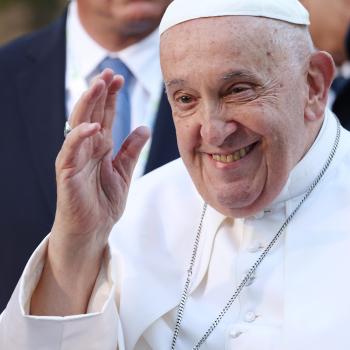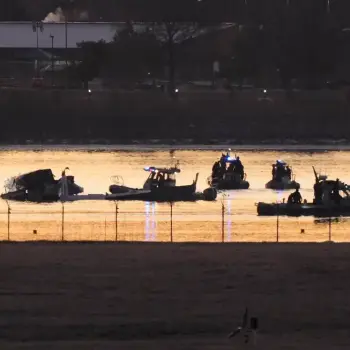I used to be a Calvinist.
Yet there were things about Calvinism as a theological system that never sat right with me. I had difficulty accepting "meticulous providence," the idea that God intends everything that happens to happenin the specific way it happens. A common analogy for this view of God's sovereignty over history is "God as novelist." God writes the story of creational history. Every event, great or small, happy or horrific, is included in that story for a specific purpose—all of which serves the glory of God and the good of the elect.
But herein lies the problem: I cannot subscribe to a theology which insists that tsunamis and other disasters were intentionally, specifically, intended by God to happen, just as they happen, for some individual, particular reason.
Many Calvinists find comfort in the conviction that God has absolute control over every aspect of life. Some argue that if God isn't scrupulously directing the tough times, including national tragedies and global catastrophes, why should we expect him to direct the good times? This is a fair point. If God wasn't "in control" of the tsunami, why should we suppose him to be in control over the precariousness of a child's birth or an arduous, frustrating job search? It's all or nothing. Right?
Is it really? Does providence only count if God is a micro-manager? Can God be a macro-manager and still be sovereign over the present and the future? Can God be in charge of the whole but not in control of every single detail? I think so. And I think this is the general thrust of the scriptural witness.
There is a meaningful difference between God's permissive will (that which he allows to occur even though he does not want or intend it actively) and God's ordaining will (that which he actively wills, thereby ensuring that it happens just as it happened for a specific reason). This line divides the Arminian from the Calvinist—at least on the issue of providence. David Bentley Hart, in The Doors of the Sea: Where Was God in the Tsunami?, suggests that this distinction allows for the reality of inexplicable suffering, the kind that is neither divinely intended nor purposeful. Seemingly pointless suffering may actually be pointless; that is, it may have no direct reference to any specific, immediate divine purpose or explanation that makes it worth the pain.
But can more be said about natural disasters than that they are not divinely intended for specific purposes?
Terence Fretheim, in Creation Untamed: The Bible, God and Natural Disasters, suggests that a proper explanation of natural disasters and the suffering they cause can be found in an adequate biblical theology of creation. Genesis tells us that God created the world good -- not perfect or completed. The elements of creation bore within themselves the freedom and responsibility to continue the creation process—though not apart from God's continual, providential involvement. Freedom, chaos, and even natural disasters are imbedded in the very fabric of life. With life comes death. With joy comes pain. The earth rotates, tectonic plates shift, and the history of the world marches on. Along with the beauty, majesty, and mystery of life, there is pain, death, and tragedy. In the midst of it, God is not distant, removed, or dispassionate, but involved, interested, and empathic. In fact, he entered into it himself, uniting to creation itself through the incarnation of the Son and the ongoing presence of the Spirit.
Upon God's initial act of creation, theologically described in Genesis 1-2, he continues to create through "the creative capacities of that which is not God" (19). He instills freedom within the processes of life for created beings to continue the process of creation, though under God's ultimate supervision. Nature is not a finished product but a dynamic process, "characterized by a remarkable open-endedness" (17) in which even earth and water are involved as both subject and object in this ongoing creation.
Along similar lines, theologian and scientist John Polkinghorne has argued for a "free process" view of God's providence. Just as humans are free to choose their actions, so God imbedded freedom within the very fabric of creation. Quantum physics corroborates a kind of indeterminacy, openness, and possibility at the very fundamental level of natural reality. This all implies that chaos and danger necessarily accompany the order and beauty of the natural world as it unfolds through history.





